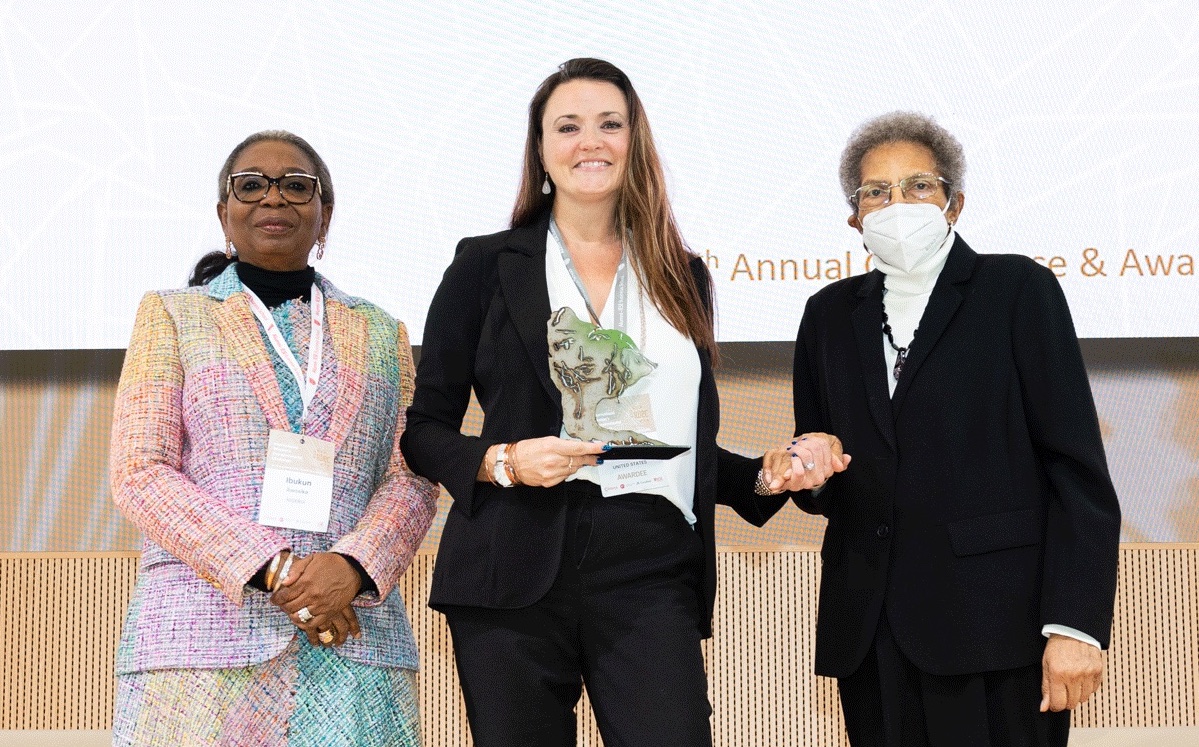
The Future of Resilience Will Come Through
Inclusive Coalitions – Not Corporate Strategies
by Jasper Yeager, MKA Operations and Logistics Administrator
Long before I worked for MK Advisors, I was part of an inspired little company full of the sorts of people that a corporate HR guide might suggestively describe as ‘unorthodox.’ A hypothetical quarterly performance review might have said of each of us, to a soul: “<NAME HERE> is so creative, forward-thinking, and takes initiative, but we’re concerned that they might not be the right culture fit for our organization.”
We considered the company that we did work for a sort of endangered wildlife preserve, a safe habitat for unsafe people, whose marketable skills firmly placed them amongst the white collars, but for whom any sort of skills beyond those, be they interpersonal, organizational, or survival, would mark them as suitable for inclusion on the IUCN Red List. We were a patchwork quilt of a functional organization, frankensteined into semiprofitability by a combination of canny salesmanship, brilliant vision, and the sheer dedicated drive of every last person that worked there. Every finished project was a logistical boxing match three degrees above our weight class, but we moved mountains.
Naturally, we were dissected, defunded, and gutted inside of five years. Good things are rarely as good as we remember them, but neither do they last as long as we’d like.
But if listening to our leadership made me feel confident, and listening to our engineers made me feel inspired, listening to the board that controlled our purse strings made me feel as if there were a hidden camera in my Taco Bell bag, poised to capture the exact moment that I might angry-cry into a burrito.
Here were men who had never delivered any large-scale public works, had invented nothing, who deigned to promote environmental solutions primarily as a vanity project, whose only pertinent qualifications were the figures in their bank accounts; why were they sitting at the same table as people that had dedicated their lives, personal and professional, to sustainable infrastructure? Why were their opinions on public works issues given any weight at all when they could scarcely identify the problems, much less offer meaningful solutions?
The answers to these questions would not come in time to save that company, and I parted ways amicably with those least responsible for our disintegration. I’ve never forgotten the sense of scrappy camaraderie that drove us forward, but neither am I any less perplexed at the practices that ground us to a halt. We were innovative. We were flexible. We were tapping into an underserved market, in a growing field, with technology ahead of its time – we simply weren’t profitable enough, fast enough. That might be a mortal sin by the dogma of private equity, but outside of that paradigm that’s simply how the growth of any business plays out.
This is a cycle we’ve seen play out ad nauseum: small, self-motivated and self-governed ventures, driven by coalition effort, build themselves up to effectiveness and profitability; these ventures catch the attention of, or are outright bought out by, external profiteers that believe they can map their own fiscal acumen onto the coalition’s professional landscape, with little to no consideration for established practices or deferment to existing experts; these profiteers run the venture into the ground, either as a consequence of their own ignorance or as a deliberate liquidation of assets. In either case, the venture is dismantled and the profiteer moves on to their next ‘opportunity,’ likely with no meaningful lesson learned.
But the rapidly-changing realities of the modern market landscape – as well as the environmental landscape – mean that this cycle of private corporate consumption is no more sustainable than our current energy infrastructure. Not in the medium term, and certainly not in the long. To wit:
- Small coalition-style groups can accomplish more with a small, fixed amount of resources than multinational behemoths; efficiency beats out scale on a long enough timeline. This is because small groups must prioritize self-sustainment over constant growth, whereas the current corporate model demands growth at all costs. But growth categorically cannot be sustained indefinitely, whereas a sustainable model invites growth commensurate with the availability of resources.
- Coalitions, by definition, are not only diverse, but celebrate and accommodate the diversity of their members. Far from the oversimplified stereotypes of affirmative action and ‘diversity hires,’ a diverse workforce broadens the collective available skillset, brings diverse perspectives into solution development, and recognizes that human contributions go well beyond the resource and productivity metrics so beloved by the corporate model.
- In the face of ongoing, increasingly frequent environmental disasters that can upend economies, confidence in existing corporate models has scarcely been lower. Within the last two decades, the average American has lived through two full economic recessions, dozens of destabilizing environmental events, and the bursting of multiple market bubbles – in the face of this, is their distrust in the corporate model anything but sensible?
- 100 corporations produce 70% of global emissions. This is not secret, to them or to us. Their reluctance to commit to meaningful reduction, and in some cases hostility to doing so, speaks to either willful disregard of the facts or an inability to shift course due to pressure from investors and market forces. Either of these possibilities damns the likelihood of corporate-led initiatives making a meaningful impact on emissions reduction.
- Meanwhile, scientific, technical, and logistical advancements towards energy resilience and climate change solutions continue to be developed in university labs, small-business workshops, and the garages of very resourceful (and often very resource-poor) people.
I would like to clarify that an emphasis on profit and growth is not inherently bad; in fact, they are necessary to scale solutions and encourage replication. But when these metrics are pursued without consideration for human costs, to the exclusion of community welfare, and without regard for long-term sustainability, they become not only detrimental, but self-defeating. Profit and growth require resources that we know beyond the most fantastical of doubts to be finite, and current corporate models have little to no strategies or incentives to budget for these very real, very material limits. The changing tides of the market and the environment are beginning to force these models to reevaluate, but small, cooperative groups have had to account for these limitations all along. The answers exist.
Boardroom strategists are looking for solutions to problems that ten-person startups have been solving for years.
The engineers and artists and office managers and accountants and laborers and janitors of an organization are its actual leaders, and the reason that things get done at the end of the day. But none of those people are the richest person in the room. Coalitions will continue to build the future, collectively, in spite of corporate oversight, not because of it.







